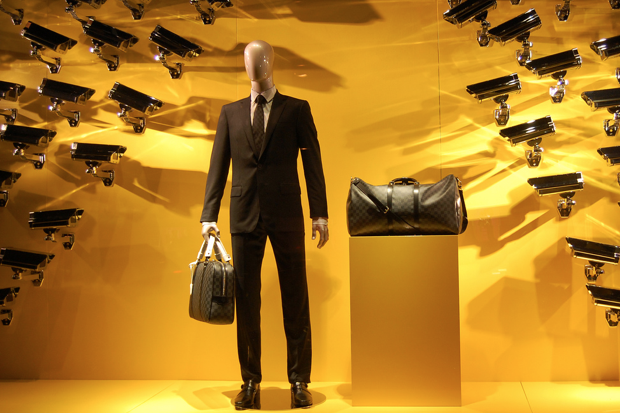The German government proposed an Orwellian nightmare: Backdoors for spying added to cars, computers, IoT devices.
Germany is sliding closer to “an Orwellian nightmare” in which companies responsible for tech connected to the internet — even cars — legally would be required to build in backdoors “to allow for secret surveillance” of citizens inside their homes and vehicles.If the country’s Interior Minister Thomas de Maizière has his way, then German security agencies and law enforcement would be able to tap in and spy on people via devices in their homes and in their cars. He even wants to add a type of “kill switch” to kick their computers from the internet.
RND (RedaktionsNetzwerk Deutschland) explained that the interior minister believes it has become “increasingly difficult to install and hide bugs” and pull off eavesdropping attacks, so the answer is to “use technical means against individuals.” De Maizière wrote a proposal that would require backdoors for “covert information gathering” in devices that make up the Internet of Things. In reality, that would mean everything from “smart” toys, modern vehicles, computers, tablets, smartphones, TVs, networked sex toys, digitized kitchen appliances — the list goes on and on.
De Maizière expects the automotive industry to comply with adding these backdoors and even be able to block text notifications that would alert vehicle owners that something is happening to their cars. Granted, most of this news is being gleaned via translated news, but an example given about notifications included how the locking systems on modern cars are so secure that the owner is notified if the car is shaken a little bit.
But it is not just about locked cars, as Golem.de added that “manufacturers of alarm and security systems could be required by law to cooperate with the authorities and, for example, suppress warnings by SMS to the suspects.”
Why stop at covertly using backdoors to spy on people and killing off notifications when a device could also be kicked off the internet? De Maizière proposed a “botnet takedown” concept that would allow security authorities to kick infected computers from the internet. Computers aren't the only connected-devices that can be infected, so it is unknown if infected routers, for example, would also be kicked.
RND said the authorities would be allowed “to use private data from computers to alert end users in good time if hackers want to misuse their computers for criminal purposes.” If an ISP refused to cooperate and flick the kill switch to kick a computer off the internet, then it would face “far-reaching penalties.”
This Orwellian nightmare is a terrible, horrible, no good, very bad plan
It comes as no surprise that critics are pointing out that backdoors weaken security and bad actors might also take advantage of them. Others point out that the proposal would be a death knell for privacy.Frank Rieger, spokesman for the Chaos Computer Club (CCC), told Netzpolitik the proposed law is a “frontal attack on the digital and physical security of all citizens.” As devices are increasingly connected online, that would mean a future where “any everyday device could legally be remotely turned into a secret service bug. And access to the IT system of a car means danger to life and limb — it is a literal kill switch.”
Volker Tripp of the Digital Society warned that if de Maizière’s draft proposal moves forward, there would be “no privacy, no room for retreat and no impartiality.”
“In the future, all devices, buildings and moreover almost all people will be connected to the internet,” Bernhard Rohleder, managing director of Bitkom, told Spiegel Online. Minister de Maizière’s “move is therefore about ‘gaining state access to just about everything and everyone.’”
“The Home Secretary’s plans read like an Orwellian nightmare, and soon all the homes in the Federal Republic will be equipped with potential bugs, and the physical hurdle of a big eavesdropping will fall,” added Konstantin von Notz, deputy leader of the Green Party. “We need to think hard about whether, with two dictatorships in recent history, we want to live in a country where there is no private retreat and the state can do whatever is technically possible.”



No comments:
Post a Comment